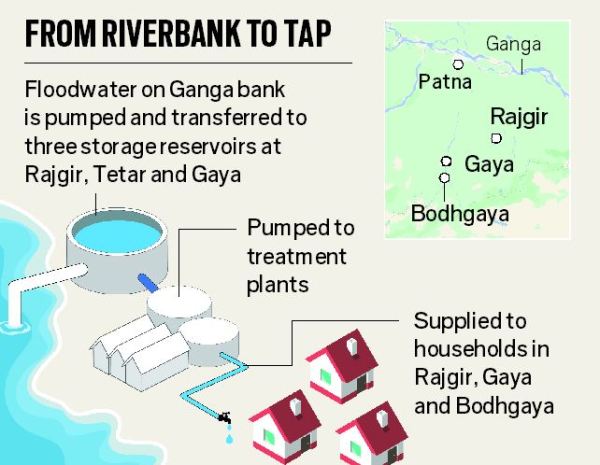Bihar’s bitter lesson in teacher recruitment
6 min readIn January 2006, weeks after taking over as the chief minister of Bihar, Nitish Kumar called a meeting of senior officials of the human resources development department (now education department) at his residence. The agenda was to ascertain the state of primary and secondary education in the state. By the time the meeting was over, the senior Janata Dal (United) leader, otherwise known for his composure, was in shock.
The state’s entire education system was in a mess. Over 500,000 posts of teachers were lying vacant. More than 2.5 million children were out of school. And there was a complete lack of infrastructure. Aghast, Kumar ordered the department to quickly correct these wrongs. Within days, the government was ready with a plan to fill the vacancies. It was decided that teachers would be hired on contract and the panchayats and local bodies would be given the authority to recruit them. Vacancies were advertised and within a few years, 150,000 teachers were recruited. With this, Kumar boosted school enrollment and provided jobs to the unemployed. This earned him praise, not only in his homeland but also overseas.
The picture was, however, far from rosy. A simple verification exercise, initiated by the education department in early 2012, opened a can of worms. The department found that many teachers who were recruited at that time had got the jobs on the basis of fake degrees. The drive unearthed widespread corruption in the recruitment process. Most of the teachers were found to be unfit for the job even after five years of teaching.
The recruitment of teachers was done in two phases – in 2006 and 2008. The process was simple: anyone with a high school mark-sheet could apply for the job. All that the applicant had to do was furnish photocopies of the mark-sheets. The village mukhiya (head) would then choose the best among them on the basis of the marks and qualifications. The chosen candidate then had to submit the original mark-sheet and degrees for physical verification, which was done by the block education officer. After this, the appointment letter would be issued and the person would be told to report for work at the earliest possible date.
“The village heads and the clerks started milking the scheme,” claims Sanjeev Shayam Singh, a senior teacher leader and member of the Bihar Legislative Council. “The scheme was flawed from the very beginning. The state government cannot trust these people to implement even its minutest developmental scheme, yet it decided to delegate such an important task to them.” The scheme, he adds, was bound to fail. “The mukhiyas and block-level officials made a killing from it.”
One of the teachers recruited under this scheme says, “There was a mad scramble. Given the high rate of unemployment in the state, everyone wanted to land a job. Though the rules clearly specified that only those with the highest marks and qualifications would be recruited, they were rarely followed.”
The teacher adds, “Mostly those with money and contacts in the right places were recruited, even if they had lower marks or qualifications. Degrees were printed from the nearby press or computer shops and attested by the candidates themselves. Because the officials were also involved, these ‘degrees’ were not verified.”
In cases where block-level officials did send letters to the Bihar State Education Board or the universities concerned asking for the verification of certificates, these letters did not reach the destination. The agents of aspiring teachers or mukhiyas would instead collect these letters from the post office and later mail fake verification certificates to the state government officials.
The “fee” for landing the job varied from region to region. In the backward and poorer parts of the state, mukhiyas charged Rs 50,000 to Rs 1 lakh. In the comparatively richer areas such as Patna, Nalanda, Bhojpur and Rohtas, the applicants paid between Rs 1.5 and Rs 2 lakh.
“Everyone was confident that the state government would regularise the job and that they would get a hefty increment in pay in a couple of years. It was considered the safest bet,” says a teacher. “This is what happens when you turn education into a job scheme,” says Shayam Singh.
The state government, however, maintains that this was an effective scheme because it brought students back to schools. “We admit that there were some problems, but we still believe it was an effective scheme,” says Bihar Chief Secretary Anjani Kumar Singh. “In 2006, we had the worst student-teacher ratio in the country. The normal recruitment process would have taken years and the cost would have been unbearable for the state.” The panchayats, he adds, were given the authority to recruit the teachers because the honorarium of these teachers came from their budget. “And, at the end the day, you have to trust a democratic institution,” he says.
This recruitment process has, however, adversely impacted the quality of education in the state. The Annual Status of Education Report, released by NGO Pratham, shows that more than half the students in Class I cannot recognise numbers 1-9 and only 40 per cent of Class IV students are able to solve maths problems involving subtraction. It also reveals that more than two-thirds of the students of Class V in government schools cannot solve problems involving division. In reading too, more than 50 per cent of the Class IV students cannot read words. Only 30 per cent of Class V students can recognise and read words, while only 16 per cent can read an entire sentence. To be fair, national numbers are not that much better.
But that’s not all. On July 16, a Comptroller and Auditor General (CAG) report for 2012-13 tabled in the Bihar assembly disclosed that the education department had inflated the number of children enrolled in schools in four districts of the state. The CAG report found that the enrolment figure had surpassed the population of children in the age group of 6-14 years in those areas.
Member of Bihar Legislative Council Sanjay Prasad says, “This scheme led to the plummeting of the quality of education in the state.” He says that a few months ago, while campaigning during the recent Lok Sabha elections, he had visited a government school. “The teacher there was telling the children that ‘crow’ is a four-legged animal and that ‘cows’ fly in the air. I was also shocked to learn that ‘Thursday’ comes before ‘Wednesday’ and ‘Saturday’ follows ‘Sunday’. The teacher had even spelt the names of the months wrong.”
The state government admits that it has had to compromise on quality to recruit teachers within its budget. “Had we taken the normal route, the state’s entire budget would have been spent on their salaries,” says Chief Secretary Singh. “Our priority was to recruit the teachers first, then groom them through training and experience. Now, we are focusing on quality. We organised a ‘teacher eligibility test’ in 2012 and successful candidates are now being recruited on the basis of their performance in that test,” he adds.
The state government has, meanwhile, decided to take action against those teachers who got their jobs on the basis of fake degrees. State Education Minister Vrishen Patel says, “So far, we have dismissed more than 1,100 teachers. We will now file an FIR against them.” He, however, refuses to say whether the Bihar government will conduct a statewide verification drive to check the degrees of all the 150,000 teachers recruited during the period in question.
“Teachers are a powerful lobby in the state,” says an analyst. “They do the preliminary work for the election. It is they who prepare the voters’ list and man the booths on polling day. Therefore, no political party wants to invite their wrath by demanding such a verification drive.” With 200,000 employees, the education department is the largest employer in the state. But it still has vacancies for 300,000 teachers.
Besides teachers, mukhiyas too are important in the scheme of things. “Most of them are ground-level workers of political parties,” says the analyst. “Given that the state elections are only one-and-a-half years away, do you think any party would want to commit political suicide?”
Courtesy: Business Standard


